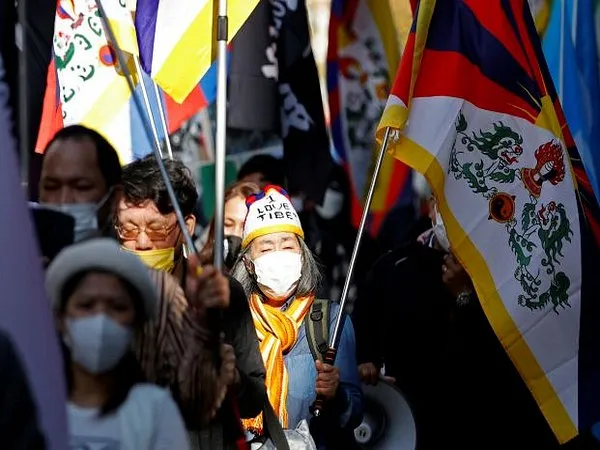Tibet was never a part of China before the People’s Republic of China (PRC) invaded the Himalayan region in 1950, according to pre-1949 official records. These historical records completely discredit the Chinese claim to Tibet from ancient times.
This is one of the outcomes of a multi-year collaborative historical research project published recently. The findings of the project were presented at the US Congressional-Executive Commission on China on 23 June.
“China’s pre-1949 official historical records clearly show that, before the PRC invaded Tibet in 1950, Tibet was never part of China. Sadly, today many governments incorrectly believe this ridiculous lie, and this is part of the reason why many western democracies fail to provide adequate support for upholding Tibet’s sovereignty,” said Hon-Shiang Lau, Retired Chair Professor, City University of Hong Kong, in his testimony before the Commission.
He also presented maps from the Ming and Qing dynasties to prove that Tibet was never part of a Chinese empire and that, therefore, the PRC’s claims to unify China by annexing Tibet are baseless.
He mentioned that there are two important foundation concepts behind this theme, which are –
Foundation A: “There is an abundance of authentic and reliable pre-1949 Chinese official historical records. The PRC-version of “Chinese history” is very different from the version of “Chinese history” reflected in these pre-1949 official Chinese records, and Foundation B: “we use a comprehensive range of objective criteria to examine whether Tibet was part of China. Thus, to judge whether Tibet was part of China during China’s Ming dynasty, we use official classical Chinese records to examine”.
Another witness, Michael van Walt van Praag, Professor of International Law and Executive Chairman of Kreddha, stated clearly that Tibet was not historically part of China and denied their claim to Tibet from ancient times.
The professor also accused the international community, including the US, of falling in line with China’s historical narrative that Tibet has always been part of China.
The Professor said, “Contrary to what the People’s Republic of China claims and to what many people take for granted, Tibet was historically not a part of China. This is one of the outcomes of a multiyear collaborative historical research project that I recently completed and published.”
“This is relevant and requires our attention because the PRC government has made an agreement on its version of history a precondition to Sino-Tibetan negotiations, which have been in deadlock now for 12 years. More fundamentally, the PRC bases its entitlement to Tibet solely on its assertion that Tibet has been an integral part of China since antiquity. Whether or not Tibet was historically a part of China, therefore, determines whether the PRC has the legitimacy to rule Tibet or not. And that, in turn, informs the international community’s obligations and responsibilities regarding the Sino-Tibetan conflict,” he added.
Professor Praag furthered that the international community was wrong in believing that the Sino-Tibetan conflict is an internal affair, as China illegally invaded Tibet in 1950, according to International Law.
Tenzin Tethong, Former Tibetan government official and Representative of His Holiness the Dalai Lama to North America, testified regarding the challenges faced by the Tibetan Central Administration and His Holiness the Dalai Lama in maintaining contact with the Chinese government.
Ellen Bork, Contributing Editor, American Purpose, highlighted the use of propaganda by the Chinese government and their use of state-owned media to popularize a false narrative about Tibet and its intentions.
Ellen Bork added, “More than 70 years after the invasion, Tibet remains a high priority, for the Chinese Communist Party. This priority is evident in the attention and resources the Party devotes to surveillance, repression, and control, to General Secretary Xi Jinping’s goal of Sinicizing religion, the exploitation of natural resources, and building up military forces along Tibet’s border with India.”

